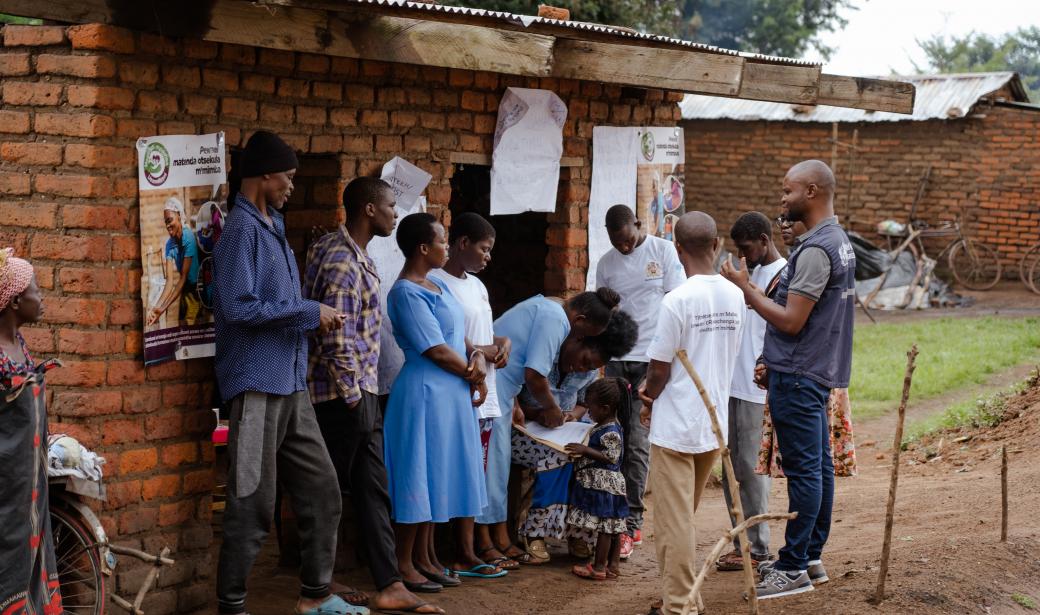Lilongwe – In Area 36, a densely populated neighbourhood of the capital of Malawi, Lilongwe, community volunteers and health workers keep a lifesaving Oral Rehydration Point (ORP) open every day, all day long. Every morning, the small group sweeps the ground and takes out supplies provided by World Health Organization (WHO): an oral rehydration solution and chlorine solutions to mix with water to disinfect cups and surfaces and for hand hygiene.
At this ORP, like the 46 others that WHO has helped establish, community members with cholera symptoms can easily access treatment for rehydration. More severe cases are quickly referred to the nearest cholera treatment centre.
With 48 000 cumulative cases and over 1500 deaths since March 2022, Malawi is experiencing its worst cholera outbreak. The setting up of ORPs helps increase chances of quick recovery and reduces cholera deaths. As of 18 February, Malawi had registered a 15.7% week-on-week decrease in new cases and a 36.4% decrease in deaths.
“When someone comes here, we give ORS and we ask questions about the symptoms, their frequency and intensity. If the patient is very sick, we send them to the hospital,” says Falesi Nkhoma, who took part in recent polio and cholera vaccination campaigns. “Two of my neighbours had cholera and one died. After that, I thought I should help.”
“The objective is to address the high fatality rates by ensuring people don’t wait too long before being treated,” says Dr Lilian Malino, who works on case management at the Ministry of Health.
Cholera is an acute intestinal infection caused when someone consumes food or water contaminated with the bacterium Vibrio cholerae. The disease can kill within hours if untreated.
“Our strategy was that each cholera treatment unit or cholera treatment centre must be linked to four ORPs, so that severely ill patients, including pregnant women and children under 5, could start rehydration even before they arrive at the hospital,” says Dr Malino.
Communications Officer
WHO Malawi
email: mukhunav [at] who.int (mukhunav[at]who[dot]int)
Tel: +265 999 375 094
Communication Officer
Regional Office for Africa
Email: defaitv [at] who.int (defaitv[at]who[dot]int)



